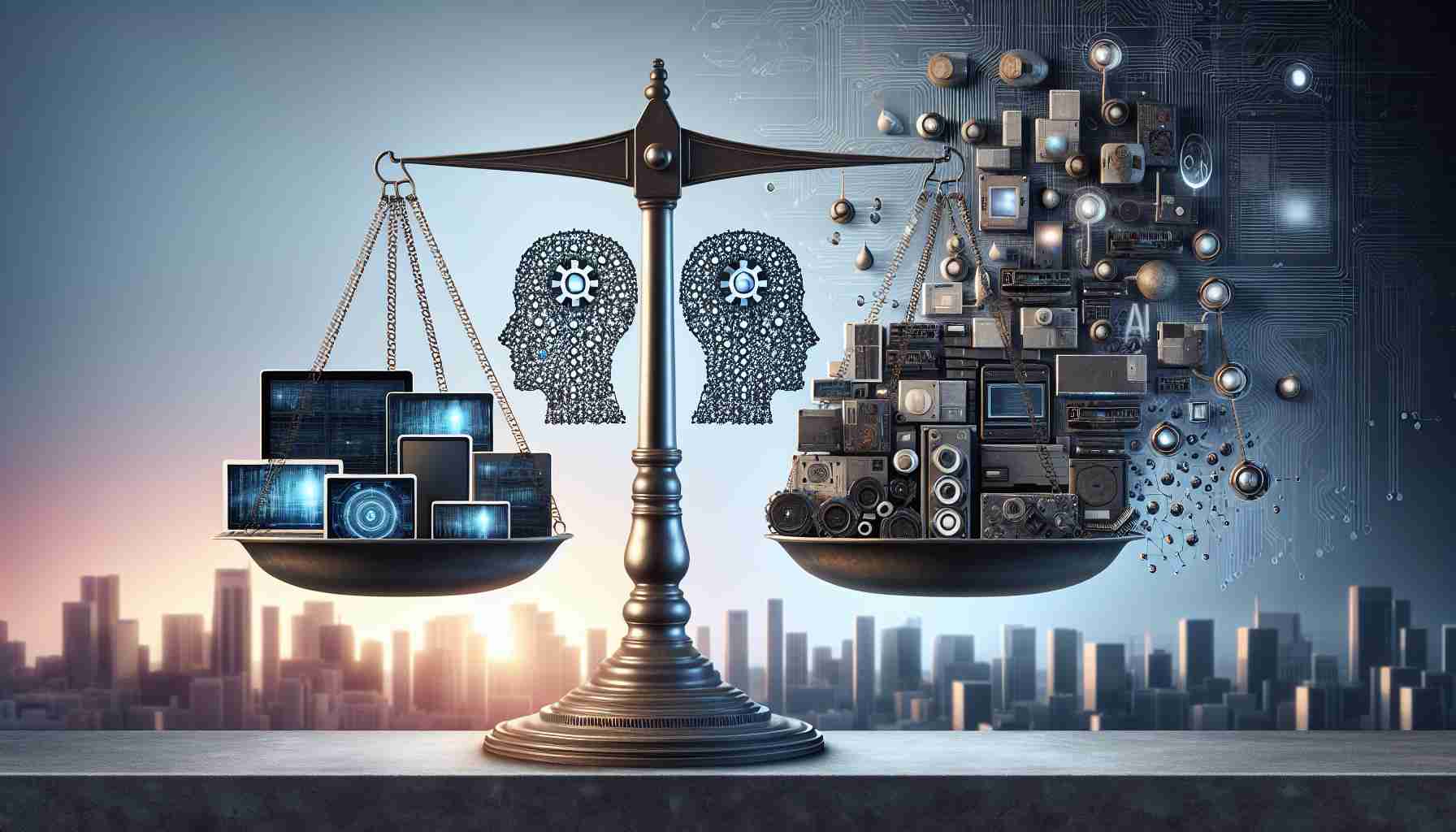Artificial Intelligence (AI) platforms have been garnering immense attention worldwide. These platforms, akin to the debut of Tesla’s electric vehicles and self-driving capabilities, hold the promise of transforming various aspects of our society. However, as with any new technology, there are significant challenges and uncertainties surrounding the full extent of AI’s capabilities and its ethical use.
While AI platforms like Gemini, developed by Google and OpenAI’s ChatGPT, are gaining traction, the lack of comprehensive guidance and understanding on how to use AI hinders widespread adoption. Just as the world was not entirely ready for electric vehicles due to the scarcity of charging stations, the same can be said for AI platforms. To harness the power of AI, users require not only accessibility but also knowledge of its vast capabilities.
Drawing inspiration from the concept of “guerrilla government” coined by Rosemary O’Leary in her book “Ethics of Dissent,” where career public servants work against the wishes of their superiors, we can envision a scenario where AI becomes a tool for such activities. O’Leary’s theory argued that a perfect storm of big data, social media, and contracting out could foster guerrilla government behavior. Contractors, armed with AI, could potentially disrupt government activities as effectively as career public servants or even more so.
The World Economic Forum, in a report published on January 10, 2024, highlighted AI-powered misinformation as one of the world’s biggest short-term threats. The report emphasized that AI has the potential to empower malicious actors in carrying out cyberattacks and phishing attempts, posing significant risks to democracy and the global economy. The accessibility of AI to anyone, regardless of expertise, further exacerbates these concerns.
Government organizations at various levels are racing to catch up with the rapid advancement of AI. Tech companies continuously create AI models that are accessible to the public, putting government entities at a disadvantage. While initiatives like the White House’s Blueprint for an AI Bill of Rights or proposals for AI legislation in Congress exist, there are currently no legal ramifications in place. This lag in regulatory measures leaves governments vulnerable to the potential misuse of AI.
To shed light on the potential scenarios where AI could facilitate guerrilla government activities, we consulted Gemini, an AI platform developed by Google. Five hypothetical scenarios emerged: Eco-Warriors in the Department of Energy secretly analyzing energy grid vulnerabilities and pressuring for faster implementation of renewable energy sources; Whistleblower AI within the Justice Department; Rogue AI in the Department of Defense; Algorithmic Robin Hood in the IRS; and AI-Powered Protests within the Justice Department. These scenarios illustrate the ease of accessibility and rapid understanding AI can provide in driving subversive activities.
As society continues to embrace AI platforms, it is imperative to strike a balance between innovation and responsible use. Comprehensive guidance, robust regulations, and ethical frameworks must accompany the development and deployment of AI. It is only through careful consideration and proactive measures that we can harness the power of AI for the betterment of society while safeguarding against potential misuse.
FAQ:
Q: What are AI platforms?
A: AI platforms are advanced technological systems that utilize Artificial Intelligence to perform various tasks and provide services.
Q: What is guerrilla government?
A: Guerrilla government refers to the clandestine actions of career public servants who work against the wishes of their superiors, often behind the scenes.
Q: What risks does AI pose to democracy?
A: AI can empower malicious actors to carry out cyberattacks and disseminate misinformation, potentially undermining democratic processes.
Q: How accessible is AI to the public?
A: AI is increasingly accessible, and anyone can use it without needing extensive expertise.
Sources:
– World Economic Forum: www.weforum.org
– “Ethics of Dissent” by Rosemary O’Leary
– The White House Office of Science and Technology: www.whitehouse.gov
Artificial intelligence (AI) platforms have gained significant attention worldwide, promising to transform various aspects of society. However, the lack of comprehensive guidance and understanding on AI’s use hinders widespread adoption. Just as the world was unprepared for electric vehicles due to the scarcity of charging stations, there is a similar lack of readiness for AI platforms. Users need accessibility and knowledge of AI’s capabilities to harness its power effectively.
The concept of “guerrilla government” coined by Rosemary O’Leary suggests that AI could become a tool for activities similar to career public servants working against their superiors’ wishes. The perfect storm of big data, social media, and contracting out could enable guerrilla government behavior. AI-armed contractors could disrupt government activities as effectively, if not more, than career public servants.
One of the World Economic Forum’s reports highlighted AI-powered misinformation as one of the world’s biggest short-term threats. AI has the potential to empower malicious actors in cyberattacks and phishing attempts, posing risks to democracy and the global economy. The accessibility of AI to anyone, regardless of expertise, worsens these concerns.
Government organizations at various levels are racing to catch up with AI’s rapid advancements. Tech companies continuously create AI models accessible to the public, putting government entities at a disadvantage. While initiatives like the White House’s Blueprint for an AI Bill of Rights or proposals for AI legislation in Congress exist, there are currently no legal ramifications in place. This regulatory lag leaves governments vulnerable to the potential misuse of AI.
To demonstrate AI’s potential for facilitating guerrilla government activities, we consulted Gemini, Google’s AI platform. Hypothetical scenarios emerged, such as Eco-Warriors secretly analyzing energy grid vulnerabilities, Whistleblower AI within the Justice Department, Rogue AI in the Department of Defense, Algorithmic Robin Hood in the IRS, and AI-Powered Protests within the Justice Department. These scenarios highlight AI’s accessibility and rapid understanding in driving subversive activities.
As society embraces AI platforms, a balance between innovation and responsible use is crucial. Comprehensive guidance, robust regulations, and ethical frameworks must accompany AI’s development and deployment. Only through careful consideration and proactive measures can we harness AI’s power for societal betterment while safeguarding against potential misuse.
The source of the article is from the blog hashtagsroom.com

